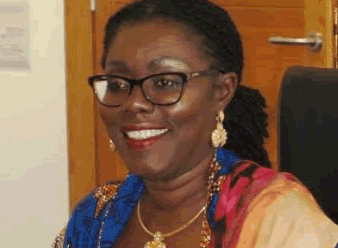Take deliberate steps to address technological gap – Ursula Ekuful
 Mrs Ursula Owusu Ekuful, Minister for Communication, has called on stakeholders in the Telecommunication sector to deliberate and to provide technological inclusion for significant portion of Ghana’s population in terms of Information Communication Technology (ICT).
Mrs Ursula Owusu Ekuful, Minister for Communication, has called on stakeholders in the Telecommunication sector to deliberate and to provide technological inclusion for significant portion of Ghana’s population in terms of Information Communication Technology (ICT).
She said women, persons with disability, and other vulnerable people should be helped to access ICT at the time when it had become part of life.
“Just about 30 per cent of women use internet on their mobile phones and we need to provide the opportunity for them to utilise even more of the power and the energy that technology provides in their daily lives,” she noted.
The Minister was speaking at the opening of the three-day International Telecommunication Union Regional Development Forum (ITU-RDF) for Africa in Accra.
This Conference is a follow-up to the World Telecommunication Development Conference (WTDC) held in Argentina in 2017 on how to localise ICT to meet the Strategic Development Goals (SDGs) on the theme “ICT for SDGs towards the implementation of WTDC 2017 outcome indicating the relevance of the realising UN-SDGs”
She urged them to put in place structures and measures that would provide or lessen the gender digital divide that excluded people with disability or the youth.
“We cannot limit technological advancement to only those in the urban areas, thus expand to include; all the various unserved and underserved communities in the country,” she emphasised.
She said by so doing, it would be easier to implement all the electronic services such as the e-learning, e-Education, e-health, mobile financial services.
Ghanaians in every part of the country should be able to access the services and there was the need to put in place infrastructure to make that happen.
“We need to give them the skills to enable them take advantage of all these opportunities and government is investing a lot in all these digital innovation.”
The Minister cited that prospective job seekers and students were challenged when they were required to apply online or check results online and all regional, district offices were asked to use more technology as well as mobile financial services in place of paper work.
It is therefore imperative that inclusion is deepened through the provision of infrastructure, affordable internet and give people the requisite skills to access those services.
She said without the application of ICT, it would be difficult to attain any of the SDGs by 2030 and hinted that Ghana’s National Communication Authority (NCA) had developed a common monitoring platform device which would assist in revenue assurance, monitoring of mobile money, reducing fraud in telecommunication among others.
It is expected that it would be considered by the ITU as Africans faced similar challenges and could be used in similar solutions to address it and experience the knowledge sharing.
ICU has a standardisation laboratory, which is used in testing and would be launched too and adapted to suit the common challenges.
Mr Joseph Anokye, Director of the NCA in his welcome address said African meeting on the ITU was represented by over 40 Countries from both public and private representation, showing the immerse contribution made by it on the global union.
He called for a comprehensive dialogue among ICT experts to strengthen the telecommunication sector in the various African countries.
Mr Brahima Sanou, Director of the Telecommunication Development Bureau (ITU-D) Technical Head of ITU-RDF, called on the participants to give a human face to ICT by using it to empower not only themselves, but also their communities and countries at large.
Also in attendance were representatives of African Union organisations, Dr Mustapha Hamid, Minister of Information, Nii Kinka Dowuona, President of the Greater Accra Regional House of Chiefs, Members of Parliament, among others.
Source: GNA
